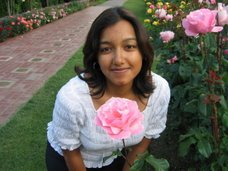The cuisine of Kerala is linked in all its richness to the history, geography and culture of the land. Most of the non-vegetarian dishes are spicy.
The food habits in Travancore and Malabar (southern and northern Kerala) are quite different to each other.
Kerala is known for its traditional sadhyas, a vegetarian meal served with boiled rice and a host of side-dishes. The sadhya is complemented by payasam, a sweet milk dessert native to Kerala. The sadhya is, as per custom, served on a banana leaf. The southern Kerala dishes are often spiced with garlic, whereas in northern Kerala garlic is generally avoided in all vegetarian dishes. Traditional dishes include sambar, aviyal, kaalan, theeyal, thoran, injipully, pulisherry, appam , kappa (tapioca), puttu (steam cake), and puzhukku. Coconut and Coconut Oil is an essential ingredient in most of the food items and is liberally used.
Pachakam
Pachakam is a Malayalam word that means cooking or preparation of food.
The culinary skills of the different communities of Kerala make the dishes distinct in taste and in variety. Almost every dish that is prepared in the Kerala style has coconut and spices added to it. The main spices used are cinnamon, cardamom, ginger, green and red peppers, cloves, garlic, cumin seeds, coriander, turmeric, etc. The vegetarian food includes sambar, rasam, olan, kalan, pachadi, kichadi, avial, thoran, etc.
Biriyani, a Mughal dish, was popularised by the Keyi family in Kerala. Biryani is a dish of rice cooked along with meat, onions, chillies and other spices. Karimeen pollichathu and fish moilee are seafood delicacies.
The main dishes are served with rice and at the end of each meal the dessert, payasam, is served. Payasam is prepared from milk, coconut extract, sugar, cashews, dry grapes, etc. Paal payasam is the speciality.
The Kerala paratta is a flatbread with layers that is served with both vegetarian and non-vegetarian dishes.
A typical Kerala breakfast may be Puttu, which is rice powder and grated coconut steam cooked together, idli and sambar, dosa and chutney, Idiyappam (string hoppers - also known as Noolputtu), or Vella Appam, a kind of pancake made of rice flour fermented with a small amount of toddy (fermented sap of the coconut palm) which is circular in shape, edged with a crisp lacy frill. It is eaten with chicken or vegetable stew or Kadala curry.
Kerala cuisine also has a variety of pickles and chutneys, and crunchy pappadums, banana chips, jackfruit chips, kozhalappam, achappam, cheeda, and churuttu.
Kanji (rice congee) and payaru (mung bean), kappa (tapioca) and fish curry are traditional favourites of Keralites.
Goat meat
A remarkable feature of Kerala cuisine is that the use of mutton is almost nil and goat meat (chevon) is widespread across communities. However, in local lingua franca mutton invariably means chevon. Sheep are not reared in this part of the world.
Syrian Christian Cuisine
A favourite dish of Kerala Syrian Christians (or Saint Thomas Christians ) is stew. Chicken and potatoes are simmered gently in a creamy white sauce flavoured with black pepper, cinnamon, cloves, green chillies, lime juice, shallots and coconut milk. They prepare stews with chicken, lamb, duck. The other dishes are piralen (chicken stir-fries), meat thoran (dry curry with shredded coconut), fiery vindaloos, sardine and duck curries, and meen molee (spicy stewed fish). This is eaten with Appam. Appams, Kallappams or Vellayappams are rice flour pancakes which have soft, thick white spongy centres and thin golden crip lace like edge. Meen vevichathu or fish in fiery red chilly sauce is also another favourite item. Besides the chicken and fish there is also red meat, erachi orlarthiathu. Beef (or lamb) is boiled with roasted cirruabder seeds, red chilles, cloves, onions, cummins garlic, ginger, fried coconut chips and a little vinegar. Then with the water reduced, the, meat is almost fried dry in a little oil that has been flavoured with sliced shallots and highly aromatic curry leaves. Wine is an integral part of their cuisine. In fact it is said that marrying into a Syrian Christian home can be the best thing that can happen to a food lover!
Arab influence
Some of the delicacies of the Mappilas of Kerala have an Arab influence that began to affect the region in the 7th century.
Pathiri is a sort of pancake made of rice flour. The word Pathiri has its origin traced to the Arabic word fateerah فطيرة, meaning "pastry".
Alsa is a Mappila dish derived from Harees, a traditional Arabic dish consisting of wheat, meat (or chicken) and salt. It is prepared by hitting the wheat with a strong equipment that makes it soft and palatable. Alsa and Biryani were popularised in Kerala by the Keyi family of Thalassery.
skip to main |
skip to sidebar

Iam charming and caring...

This blog will contain everything about the great Kerala Food. Tasty receipes, useful tips, cooking helps and cookery classes will be blogged.
It's me Anita Anand...

Iam charming and caring...
Who am I ?

- Swetha Varghese
- Trivandrum, Kerala, India
- I am a beautiful,loving, and caring girl. Doing my research in software engineering . In my free time I make money online and this blog is to share that money making secrets with all.
1 comment:
Very nice post!
Post a Comment